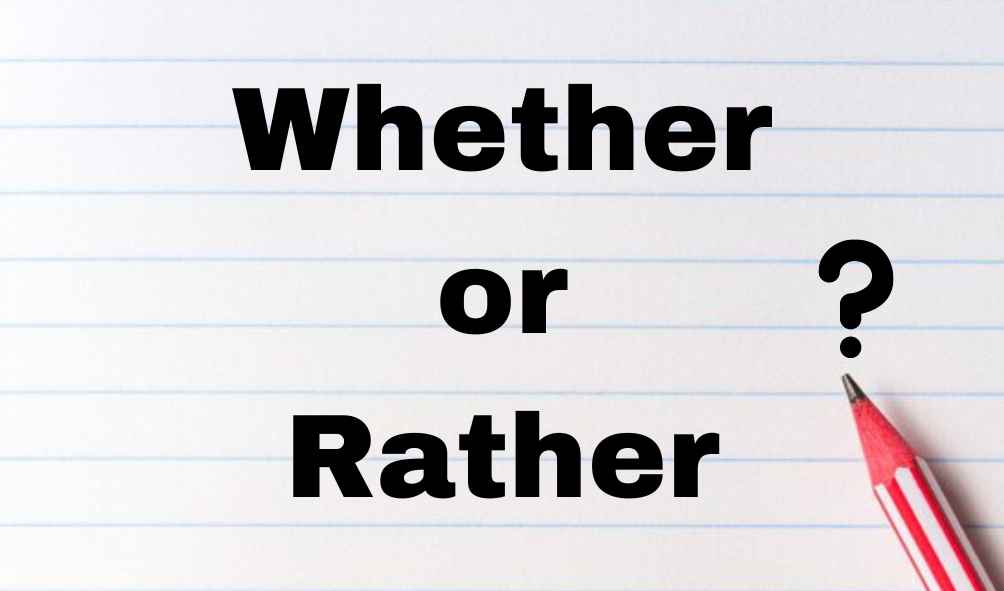
Welcome to our easy guide on understanding “whether” and “rather” in English! These words might seem tricky, but we’re here to make it simple for you. In this guide, we’ll explain what each word means, how to use them, and give you examples to help you understand better.
Explaining “Whether”:
“Whether” is like asking a question about two choices. It helps when you’re not sure about what to do or which option to choose. For example, “I’m thinking about whether to have tea or coffee.”
Understanding “Rather”:
“Rather” is like saying you prefer one thing over another. It’s about choosing what you like more. For example, “I’d rather eat pizza than burgers.”
Grammar Rules:
- Use “whether” with “or” when talking about two options. For example, “I’m not sure whether to go out or stay in.”
- Use “rather” to show your preference. For example, “He’d rather play soccer than basketball.”
Examples:
- “I’m not sure whether to buy the blue or green shirt.”
- “She’s thinking about whether to cook dinner or order takeout.”
- “He’d rather watch a movie at home than go to the cinema.”
- “I’m not sure whether to study math or science.”
- “She’d rather go for a walk than stay indoors.”
Tips for Using “Whether” and “Rather” Correctly:
- Use “whether” for asking about choices.
- Use “rather” to say what you prefer.
- Pay attention to the situation and use the right word.
Read about similar post: Whether or Not Meaning
Conclusion:
Now you know the difference between “whether” and “rather” in easy English! Remember, “whether” is for choices, and “rather” is for preferences. Practice using them, and soon you’ll be using these words perfectly in your sentences!
Knowing when to use “whether” or “rather” can help you write better. Use “whether” when you have two choices or are unsure, like “I don’t know whether I should go.” Use “rather” when you prefer something or want to show a different choice, such as “I would rather stay home.” Understanding these words helps you talk and write more clearly.
Understanding the difference between “whether” and “rather” can make your writing easier. “Whether” is used when you’re unsure or have two options. For example, “I’m not sure whether to go or stay.” Meanwhile, “rather” shows preference or emphasizes a different choice, like “I’d prefer to stay home than go out.” Knowing when to use each word helps you express yourself clearly.
Using “whether” in a sentence is easy! You can use it when you’re unsure about something or when there are two options. For example, “I don’t know whether it will rain tomorrow.” Or, “I’m not sure whether to eat pizza or pasta for dinner.” It helps show that there’s a decision to be made or some uncertainty. Understanding how to use “whether” can make your sentences clearer.
Using “or rather” in a sentence is simple! You can use it to correct something you said or to give more information. For example, “The food was okay, or rather, it was delicious!” Here, it’s used to say the food was really good. Another example: “He’s not my brother, or rather, he’s my stepbrother.” This helps explain the relationship. By using “or rather,” you make your sentences clearer and more detailed.
Saying “I rather” is not quite right in English. Instead, you should say “I would rather” or “I’d rather.” For example, “I would rather stay home” or “I’d rather eat pizza.” This way, you express preferences or choices correctly. Using “I rather” alone isn’t grammatically correct. By saying “I would rather,” your sentences will be clear and easy to understand.